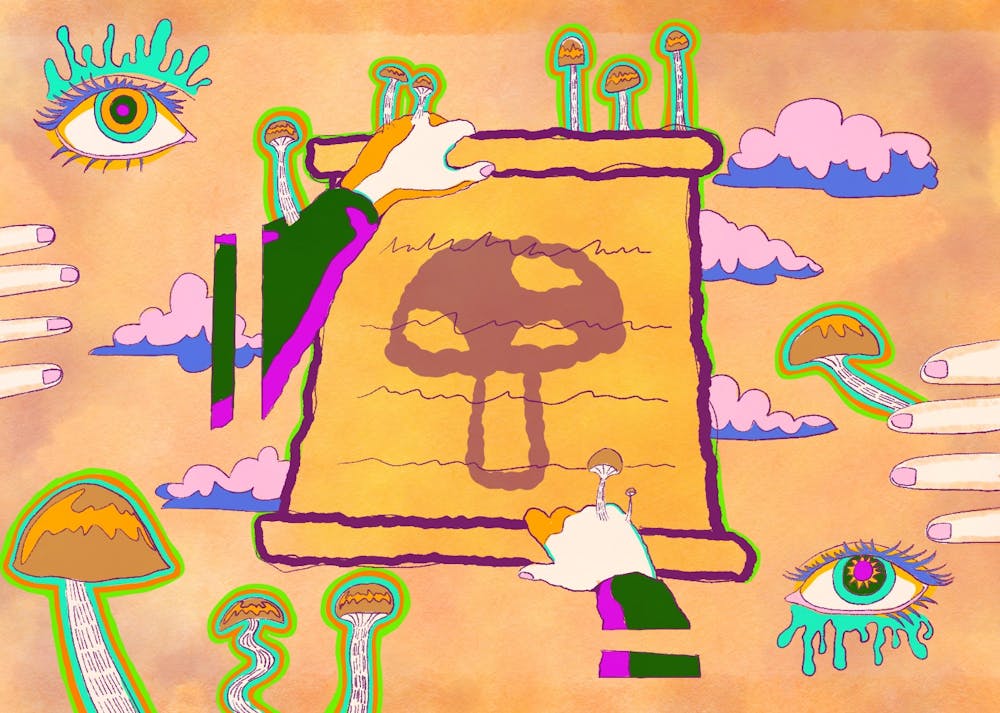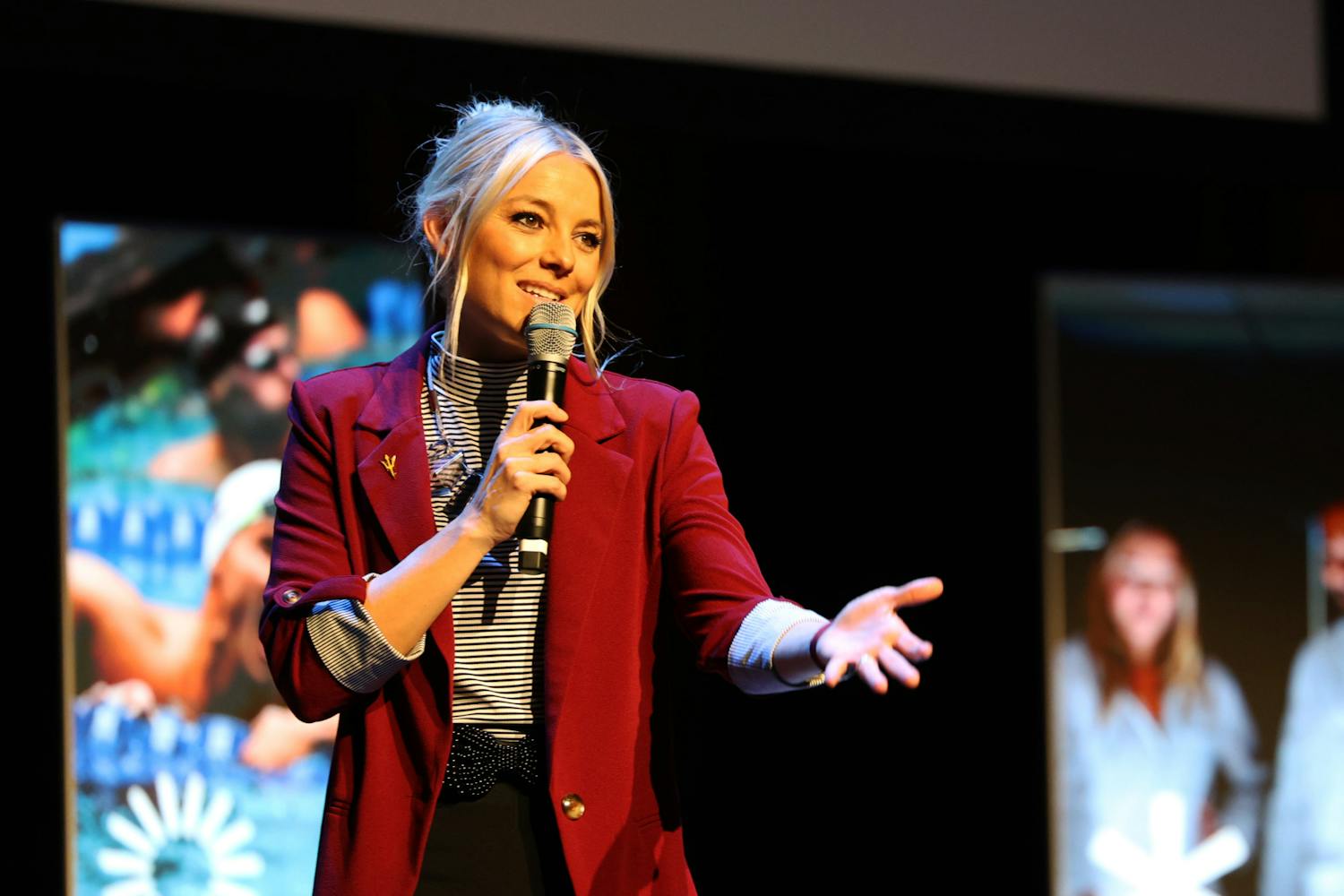Arizona could be poised to be the first state to sponsor controlled clinical trials of whole psilocybin mushrooms.
House Bill 2486, introduced by Rep. Kevin Payne, R-Peoria, would create a five-person psilocybin research advisory council within the Arizona Health Services Department to outline clinical trial criteria and oversee the grant application process. The council would recommend policy to the governor and legislative leadership about psychedelic-assisted therapy annually.
If passed, it would award up to $30 million in competitive research grants over the next three years for Phase I, II and III clinical trials using whole-mushroom psilocybin.
Phase I trials study if a treatment is safe, for what populations and at what dose; phase II trials determine the efficacy of a medicine; and phase III trials compare if the substance is better than current treatments, according to the American Cancer Society.
Unlike the legislation under consideration in other states that would decriminalize or legalize some psychedelic drugs, this bill would not change the legal status of psilocybin, the primary psychoactive compound in "magic mushrooms."
Candace Lewis, director of the Brain Epigenetic and Altered states Research Lab, said it plans to be the first in line to apply for these grants.
"I support the bill," Lewis said. "I think it's fantastic to allocate money specifically to whole mushroom research."
Lewis, an assistant professor at the School of Life Sciences and Department of Psychology at ASU, said that current research being conducted uses synthesized psilocybin.
"There's constant conversation about the possibility that the hundreds of other bioactive compounds in a mushroom are important players, too." she said "We just can't answer that to date."
Rep. Jennifer Longdon, D-Phoenix, said it is crucial that this bill and the research it proposes centers veterans, first responders, frontline healthcare workers and "persons from underserved communities" as volunteer participants in the clinical trials.
"There's a strong belief that this will be a therapy that will be exceptionally beneficial to folks living with certain conditions," including post-traumatic stress disorder, she said.
Longdon, a full-time wheelchair user who is paralyzed, is a member of the House Military Affairs and Public Safety committee, where the bill passed unanimously. She called it "worthwhile" to explore the therapeutic uses and "determine the viability" of psilocybin as a treatment.
The bill is currently stalled in the House Appropriations Committee.
"As a person who has been victimized by violent crime, I struggled with PTSD and the long-term results of trauma. I live with chronic pain," Longdon said. "There are folks who are using these plant compounds and reporting good therapeutic results as a result of using them. And I think that we need to move beyond anecdotal evidence to true clinical observation."
In Arizona, psilocybin is currently considered a dangerous drug, on the same level as cocaine, methamphetamine, LSD and ecstasy, and its possession could result in a felony charge.
Psilocybin is classified by the federal government as a Schedule 1 drug, or those with "no accepted medical use and a high potential for abuse," according to the Drug Enforcement Agency. This makes it difficult to receive federal funding for research.
The Food and Drug Administration has yet to approve any treatment of whole-mushroom psilocybin. In 2019, the FDA approved synthetic psilocybin as a breakthrough therapy.
That's what got Vanessa Grifford interested in seeking psychedelic-assisted therapy.
Grifford, a senior studying pharmacology and toxicology, said she struggled with "really severe and complicated" mental illness for over 20 years. She did everything her doctors recommended to improve her health, including various different subscriptions to market pharmaceuticals and going to talk therapy.
"Nothing was working," Grifford said. "When I saw that this was a new option, I jumped and I immediately ran to it."
Grifford traveled out of state to legally obtain psilocybin in Colorado, which decriminalized its use in May 2019. In January, Oregon became the first state to legalize the use of psilocybin mushrooms in a supervised setting.
"Psilocybin mushrooms saved my life," Grifford said.
Her experience got her interested in learning more about the therapeutic benefits of psychedelics. She is an ambassador for the Students for Sensible Drug Policy organization at ASU West, and joined the organization's national chapter's first "psychedelic pipeline," a mentorship program that pairs students who want to research psychedelics, work in psychedelic-assisted therapy or harm-reduction education with people who work in the field.
Now, she wants to study hallucinogenic substances, such as psilocybin, and see "how we can make it available to the public in the safest possible way."
"How do we develop better drug policy that is not punishing people, but instead can help people?" Grifford said. "It's the catalyst for my research."
Grifford said SSDP supports House Bill 2486, and it hopes the funds will materialize.
Lewis said it's critical to acknowledge the substances have been "used for thousands of years in a ceremonious and healing way by the Indigenous peoples of North, Central and South America."
There's been a lot of fear tactics used around classic psychedelics, Lewis said.
"The mass hysteria that has gone on about the danger of these drugs for the last 50 years is largely unfounded," Lewis said. "So, it makes sense that some people were really confused about why all of a sudden they're being talked about as therapeutics."
She also said she supports the broad list of disorders noted for treatment studies, including PTSD, long COVID, depression, substance abuse disorders and alcoholism. In this way, she said the bill addresses that the treatment capacity of whole-psilocybin mushrooms is "paradigm shifting."
"We come from a perspective that mental health disorders have distinct and different causes, and that just might not be so accurate when it comes to brain health where trauma seems to play a major role," Lewis said. "People are hungry for healing. We are in an era where mental health problems are just seen as normal and that needs to change."
Longdon said while "the bill sponsors are motivated to get it done," they will need to first overcome the stigmas associated with psilocybin.
"Our challenge is to make sure we are educating our colleagues on the project, the safety and efficacy of psilocybin," she said.
The bill's future will depend on state budget negotiations for the upcoming fiscal year. Longdon said she maintains "hope that it will be successful."
Edited by Shane Brennan, Reagan Priest and Anusha Natarajan.
Reach the reporter at tjgantz@asu.edu and follow @GantzTori on Twitter.
Like The State Press on Facebook and follow @statepress on Twitter.

Tori is a politics reporter covering voting rights, labor, and University Student Government Polytechnic at the State Press. They are currently working for the News Collab and Wick Communications to create the Voices Listening Project, a collaborative research project in Arizona funded by the Google News initiative.




